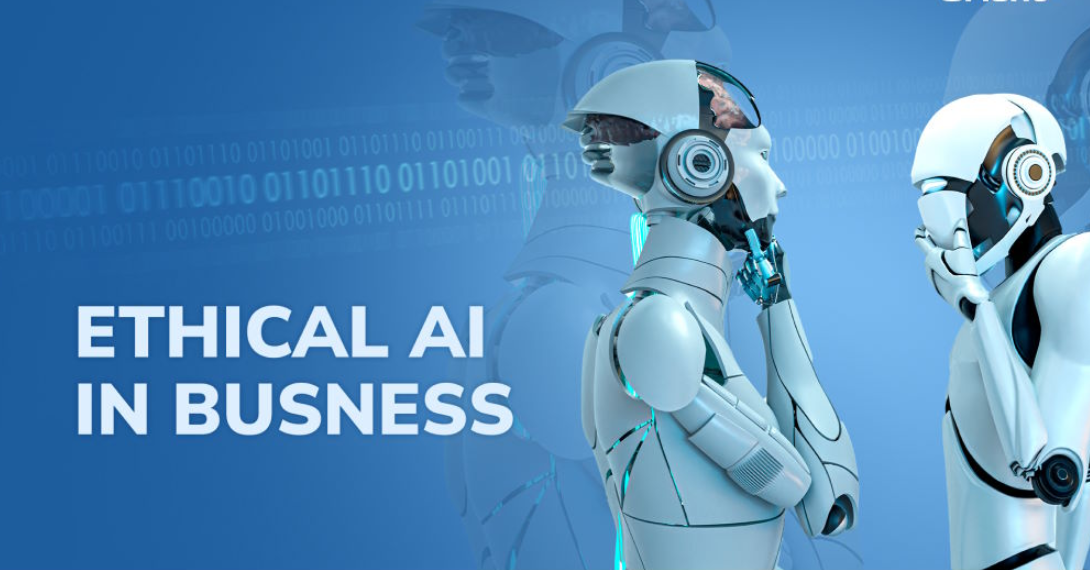Artificial Intelligence (AI) has become an integral part of modern technology, influencing various sectors such as healthcare, finance, transportation, and entertainment. As AI systems become more sophisticated and autonomous, the need for ethical considerations in their development and deployment has become increasingly critical. This article explores the necessity of AI ethics in tech development, its implications, challenges, and potential solutions.
Table of Contents
1. Understanding AI Ethics
1.1. Definition of AI Ethics
AI ethics refers to the moral principles and guidelines that govern the development and use of artificial intelligence technologies. It encompasses a wide range of issues, including fairness, accountability, transparency, privacy, and the potential impact of AI on society.
1.2. Importance of AI Ethics
The importance of AI ethics lies in its ability to ensure that AI technologies are developed and used responsibly. Ethical considerations help mitigate risks associated with AI, such as bias, discrimination, and privacy violations, ultimately fostering trust and acceptance among users.
2. The Necessity of AI Ethics in Tech Development
2.1. Addressing Bias and Discrimination
One of the most pressing issues in AI development is the potential for bias in algorithms. AI systems are trained on historical data, which may contain biases that can lead to discriminatory outcomes. For instance, biased data can result in unfair treatment of certain demographic groups in hiring processes or law enforcement.
2.1.1. Case Studies of Bias in AI
Several high-profile cases have highlighted the consequences of biased AI systems. For example, facial recognition technology has been shown to misidentify individuals from minority groups at higher rates than others. Such instances underscore the need for ethical guidelines to ensure fairness in AI applications.
2.2. Ensuring Accountability
As AI systems become more autonomous, determining accountability for their actions becomes challenging. If an AI system makes a mistake or causes harm, it is crucial to establish who is responsible—whether it be the developers, the organizations deploying the technology, or the AI itself.
2.2.1. Legal and Ethical Implications
The lack of clear accountability can lead to legal and ethical dilemmas. For instance, if an autonomous vehicle is involved in an accident, questions arise about liability. Establishing ethical frameworks can help clarify responsibilities and promote accountability in AI development.
2.3. Protecting Privacy
AI technologies often rely on vast amounts of personal data to function effectively. This raises significant privacy concerns, as individuals may not be aware of how their data is being used or shared. Ethical considerations are essential to ensure that data is collected, stored, and utilized in a manner that respects individuals’ privacy rights.
2.3.1. Data Protection Regulations
Regulations such as the General Data Protection Regulation (GDPR) in Europe emphasize the importance of data protection and privacy. Adhering to such regulations is crucial for ethical AI development, as it helps safeguard individuals’ rights and fosters trust in AI technologies.
2.4. Promoting Transparency
Transparency in AI systems is vital for building trust among users. When individuals understand how AI algorithms make decisions, they are more likely to accept and use these technologies. Ethical guidelines can promote transparency by encouraging developers to disclose information about their algorithms and data sources.
2.4.1. Explainable AI
The concept of explainable AI (XAI) has gained traction as a means to enhance transparency. XAI aims to create AI systems that can provide clear explanations for their decisions, making it easier for users to understand and trust the technology.
3. Challenges in Implementing AI Ethics
3.1. Lack of Standardization
One of the significant challenges in AI ethics is the lack of standardized guidelines and frameworks. Different organizations and countries may have varying ethical standards, leading to inconsistencies in AI development and deployment.
3.2. Rapid Technological Advancements
The fast-paced nature of technological advancements in AI makes it challenging to keep ethical guidelines up to date. As new AI applications emerge, existing ethical frameworks may become obsolete, necessitating continuous evaluation and adaptation.
3.3. Balancing Innovation and Ethics
There is often a tension between the drive for innovation and the need for ethical considerations. Companies may prioritize rapid development and deployment of AI technologies over ethical concerns, leading to potential risks and negative consequences.
4. Potential Solutions for Ethical AI Development
4.1. Establishing Ethical Guidelines
Developing comprehensive ethical guidelines for AI development is essential. These guidelines should address issues such as bias, accountability, privacy, and transparency, providing a framework for responsible AI practices.
4.2. Promoting Collaboration
Collaboration among stakeholders, including governments, industry leaders, researchers, and civil society, is crucial for advancing AI ethics. By working together, these groups can share best practices, develop standardized guidelines, and address ethical challenges collectively.
4.3. Investing in Education and Training
Educating developers, policymakers, and the public about AI ethics is vital for fostering a culture of responsibility. Training programs can help individuals understand the ethical implications of AI technologies and encourage them to prioritize ethical considerations in their work.
4.4. Encouraging Public Engagement
Engaging the public in discussions about AI ethics can help raise awareness and promote accountability. Public input can provide valuable insights into societal values and concerns, guiding the development of ethical AI practices.
5. Conclusion
The requirement of AI ethics in tech development is more critical than ever. As AI technologies continue to evolve and permeate various aspects of our lives, it is essential to prioritize ethical considerations to ensure that these systems are developed and used responsibly. Addressing issues such as bias, accountability, privacy, and transparency is crucial for fostering trust and acceptance among users.
While challenges exist in implementing AI ethics, potential solutions such as establishing ethical guidelines, promoting collaboration, investing in education, and encouraging public engagement can pave the way for responsible AI development. By prioritizing ethics in AI, we can harness the potential of this transformative technology while safeguarding the rights and well-being of individuals and society as a whole.
